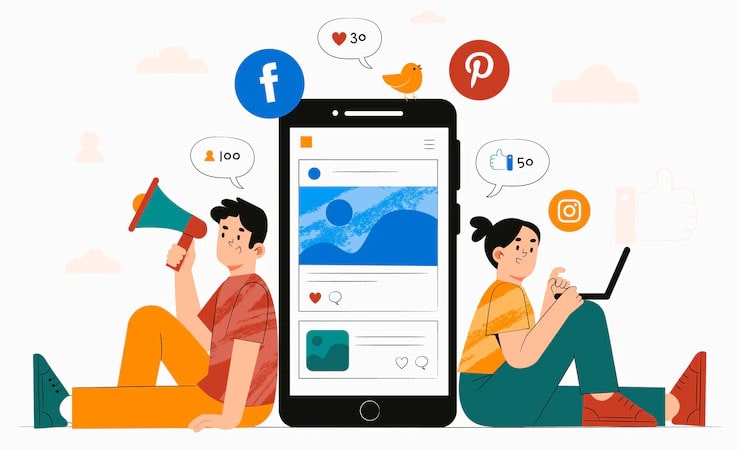What is Digital Marketing and why would a Business Need it?
Digital marketing is the use of online channels, such as online advertising and online PR, to reach and engage customers. In other words, it’s all about connecting with your target audience in a way that enhances their experience.
With so many different options available to businesses today, it can be hard to know who to turn to for help. That’s where online marketing comes in. By understanding the basics of digital marketing and how it works, you can start building a successful business campaign.
What is Digital Marketing?
Digital marketing is the process of creating, managing, and executing a marketing campaign that uses digital channels such as online advertising and online communications. It is often thought of as the fourth pillar of marketing after product, pricing, and delivery.
According to IBISWorld, online marketing was worth $317.9 billion in 2017, and is projected to reach $418.2 billion by 2027. This growth is due to the increasing use of digital platforms and devices, the trend towards e-commerce, the impact of social media on brand awareness and customer loyalty, and the increase in mobile phone usage.
There are several different aspects to internet marketing which businesses must consider if they want to achieve success:
Digital marketing strategy:
This involves establishing a comprehensive plan for how you will use digital channels to promote your business. It includes identifying your target market and understanding their needs, wants, and desires.
You should also define how you will reach your target market and create effective advertising campaigns that will attract them.

Digital advertising:
This is the primary way businesses use digital channels to market their products or services. It consists of placing ads on websites or other online platforms, as well as through social media. Digital advertising can be targeted towards specific demographics, locations, and interests.
Digital communications:
This is the process of using digital media to create, manage, and deliver customer experiences. It includes creating customer profiles, building customer relationships, and delivering relevant content.
Digital marketing analytics:
This is the use of data analysis to improve the effectiveness of digital marketing campaigns. It enables businesses to understand how their customers are interacting with their products or services, and to make changes to their marketing strategy based on this information There are a number of different analytical tools that can be used to improve digital marketing analytics.
These include web analytics, which measure traffic and engagement levels on a website; social media analytics, which track the amount of time people spend on individual platforms, as well as the kind of content they share; and customer segmentation, which looks at who is buying what and when.
Digital marketing automation:
This is a technology that helps businesses to automate the process of creating and delivering digital content. It can include tools that help you track and analyze customer engagement, as well as tools that help you create effective digital ads 6)digital marketing operations:
This is the process of managing all aspects of a digital marketing campaign. It includes assembling the right team, planning and executing campaigns, and measuring the results.
The History of Digital Marketing
Digital marketing is a term that has been used for many years now. It dates back to the late 1990s when businesses started using the internet to market their products and services. In the early days, digital marketing was all about using the internet to reach potential customers.
Today, internet marketing is much more than just online advertising. It encompasses everything from website design and development to social media campaigns and content marketing initiatives.
There are a number of reasons why businesses need online marketing. First of all, it’s a great way to connect with customers.
By using digital channels, you can reach a wider audience than you would ever be able to with traditional advertising methods. This means that you can target your ads more accurately and increase your chances of reaching your target market.
It also allows you to track your results better than traditional advertising methods. This means that you can see exactly how well your campaigns are working and make changes as needed.
In addition, It allows you to measure the impact that your campaigns have on customer behavior and sentiment. This information can help you determine whether or not your business is succeeding in its goals.
Finally, It is cost-effective compared to other advertising methods. This is especially important for small businesses, which may not be able to afford traditional advertising campaigns.
Online marketing tools such as website design and development, social media marketing, and content marketing can all be done on a budget. This means that you can reach a wider audience without having to invest a lot of money upfront.
Overall, It is an excellent way to connect with customers and drive traffic to your website. It’s also a cost-effective way to promote your business, which makes it a great choice for many businesses.
The Three Types of Digital Marketing
Digital marketing is the practice of using digital channels, such as the internet, social media, or email marketing, to reach and engage customers. It is used by businesses to promote their products and services, create customer relationships, and build brand awareness.
There are three types: traditional marketing, digital marketing, and internet marketing.
- Traditional marketing is the use of advertising and other methods to reach consumers.
- Digital marketing includes using online tools (such as websites, blogs, social media sites, or apps) to create content, distribute that content through various channels (including email newsletters), and measure the results.
- Internet marketing is the use of digital channels to drive traffic to a company’s website or web properties (such as an online store).
How to Implement Digital Marketing for Your Business
It is the use of digital technologies to create, manage, and deliver marketing messages to targeted consumers. In order to create a successful digital marketing strategy, businesses must understand what digital marketing is, how it works, and why it’s important.
It is the use of digital technologies to create, manage, and deliver marketing messages to targeted consumers. It can be used to create a positive customer relationship, build visibility for your brand, and drive more traffic to your website or blog.
There are many different types of digital marketing that businesses can use to achieve their desired objectives. Some popular methods include online advertising (such as Google AdWords), online content (such as blog posts), e-mail marketing, social media campaigns (such as Facebook ads or Twitter ads), and web analytics (to track how users are interacting with your website or blog).
Why is digital marketing important for businesses?
It provides a way for businesses to reach out to customers who are already interested in their product or service. Online ads can be targeted based on user interests (such as age, location, or gender) which allows you to reach a wider audience than traditional advertising.
Web content can also be optimized for mobile devices, which allows you to reach a wider audience even when they’re not at their desk. Finally, digital marketing allows you to track how customers are using your product or service and make changes based on that data.
What are the Benefits of Digital Marketing for Your Business?
Digital marketing is the process of creating, managing and executing a marketing plan that uses digital technologies to reach and engage customers. The benefits of digital marketing for businesses include:
Reach people who are interested in your product or service.
Digital technologies allow you to target your audience more effectively than ever before. You can reach people who are interested in your product or service using search engine optimization (SEO), pay-per-click (PPC) advertising and social media marketing.
Build relationships with customers.
Digital marketing allows you to build long-term relationships with your customers by providing them with valuable content, engaging them in conversation and offering them convenient ways to purchase your products or services.
Increase brand awareness.
Digital marketing can help you increase your company’s brand awareness by promoting your website, blog, social media profiles and other online assets. This can increase traffic to your website, which can lead to increased sales and profits.
Decrease marketing costs.
Digital marketing can be a cost-effective way to reach your target market. By using digital technologies, you can decrease the costs of your marketing campaigns, such as staff time and resources, advertising expenses and website hosting fees.
Maximize ROI.
Digital marketing can help you achieve a high return on investment (ROI) by driving increased sales, leads and customer loyalty. By optimizing your digital marketing campaigns, you can create significant business benefits that will outweigh the costs.
Digital marketing is a powerful tool that can help your business achieve its goals. By using digital technologies to reach and engage your customers, you can increase sales, build brand awareness and decrease marketing costs.
Conclusion
Digital marketing is the process of creating, delivering and measuring the effects of marketing communications that use electronic technologies.
It enables businesses to connect with customers through a range of channels, including online advertising and direct marketing. Digital marketing has become an important tool for businesses to reach new customers and grow their business.
- 5 Digital Marketing Strategies for Lead Generation
- How to establish a digital marketing plan for your small business
- 11 Free Digital Marketing Ideas For Local Businesses & Small Businesses
Follow me on Twitter, LinkedIn, Facebook, Instagram
